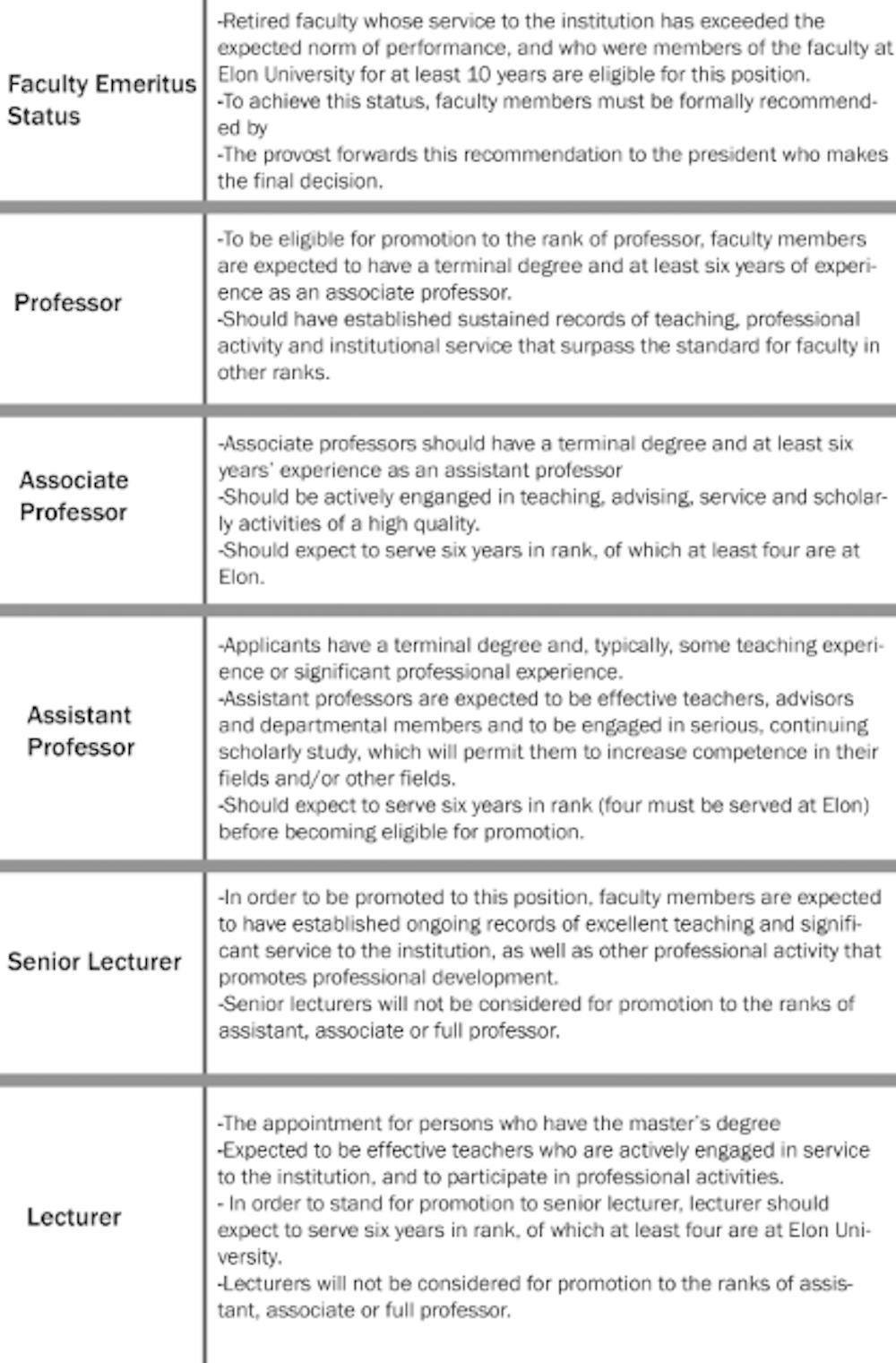From “permanent job contracts” to “holiday tickets,” a tenure status has been assigned many labels. But not all are true.
Attaining tenure status grants faculty an enhanced level of academic freedom. The status essentially functions as a form of “job security” — it grants faculty the ability to challenge administrative decisions without fearing the termination of the their job. According to the Elon University Faculty Handbook 2014 - 2015, only full-time faculty with “tenure track appoiintments” a fixed probationary period of 4 to 6 years where appointments are of a fixed term length with no guarantee of reemployment. Basically, professors on tenure track are those who have been recognized as possible tenured faculty.
The Elon Board of Trustees, who makes the final decision on tenure statuses, seeks to appoint and maintain a faculty that is 85 - 90 percent tenured/tenure track.
Tenure Status Myth vs. Reality
Myth: Tenured professors can never get fired.
Reality: The University can only fire tenured professors if they can present evidence that the professor is incompetent, behaves unprofessionally or whose actions have lead to significant levels of conflict. For example, a tenured professor in Marquette University was dismissed last week after he wrote a controversial blog post that administrator caracterized as “inaccurate and irresponsible.” But to fire a tenured professor is purposefully difficult. According to the National Education Association (NEA), only about two percent of tenured faculty are dismissed in a typical year.
Myth: After being granted tenure, professors are exempt from teaching duties and usually do not work as hard as they did before.
Reality: It is difficult to gain tenure status. Tenured professors must show unprecedent dedication to, scholarship, teaching and service. Surveys administrated by the NEA found that tenured professors generally publish more work, serve on more committees and teach more than their untenured colleagues.
Myth: Tenured professors can say and do whatever they want.
Reality: Technically, the first amendment grants everybody the right of free speech but the tenure status does, to some extent, gives faculty the independence to challenge the administration on issues of academic, political or social importance without the fear of losing their positions.


